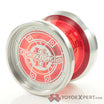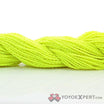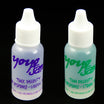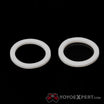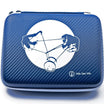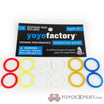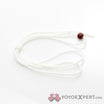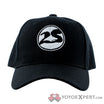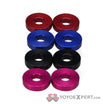To answer some more questions:
There is generally a lot of trust that goes between a yoyo brand and manufacturer. All the well known machine shops have in house brands, and the very first baseline level of trust is that the machine shop will not copy the designs of the third party brands for their own. The second is the delivery time, and finally, the quality assurance.
Out of the 3 yoyos that we made in 7068, only 1 (seiji) was made at fpm. The other two were made at a new shop(and the only yoyos made for us by that shop.) The person that I worked with was a very reputable person in the business, and had advertised to me that he had purchased some cnc lathes for the purpose of wanting to vertically integrate. At this point, due to his reputation, I had no reason to doubt him. This ended up being a lie.
It wasn’t until this tip I received (not from a customer) that I was led to believe otherwise. For the Method, the only stage of involvement I had was designing and promoting. This was the only yoyo in the post covid era that I did a collaboration with where I was not directly involved with qc. I now see that this was a mistake, and not only have taken steps to prevent this in the future, but will be doing all qc in house.
As to whether or not we have tested our 7075 yoyos, whether this is wise or not, I have seen the material certification from our normal machine shop. There is a level of trust established between the oem that makes the majority of our yoyos (they don’t work with 7068, which is why we went with another machine shop). At this point, I have no reason to be suspicious of them.
Circling back to sample 2, this sample was from a very reputable shop, that had advertised it as 7068. It still came up as not 7068. This yoyo was made pre covid. I don’t believe there is any intentional malice or deception from any of the factories, but I think the facts present themselves that somewhere in the pipeline, there is an issue.
Finally, in my personal opinion, I find it hard to believe that someone can tell what grade aluminum a yoyo is just by throwing it. I’ve been yoyoing since 2007, and making yoyos (both designing and machining) since 2013, and can not personally tell the difference. Even with the Nation and Method, people were telling me that the yoyo has a feeling that can only be made by 7068. Granted this is a small sample size, but it seems like this situation at least casts reasonable doubt that people have the ability to tell what material a yoyo is made of, simply by throwing it.
Ultimately, at the end of the day, no one’s lives will be personally affected because a yoyo was a different grade aluminum than advertised. However, this was the best decision I could come up with to resolve this issue. I owe it to the community to be thorough and transparent, and to (in my opinion) more than fairly compensate for the issue. The 7068 yoyos were priced the same as our 6061 and 7075 yoyos, although they were significantly more expensive to make.
